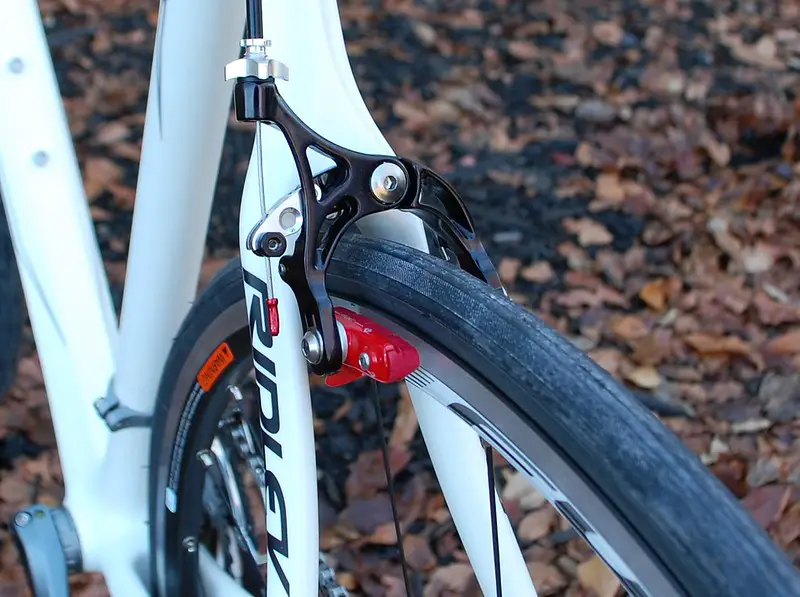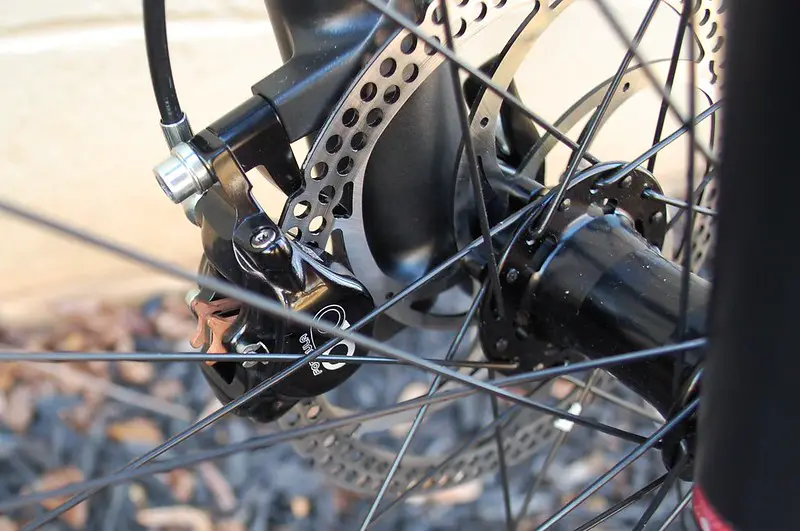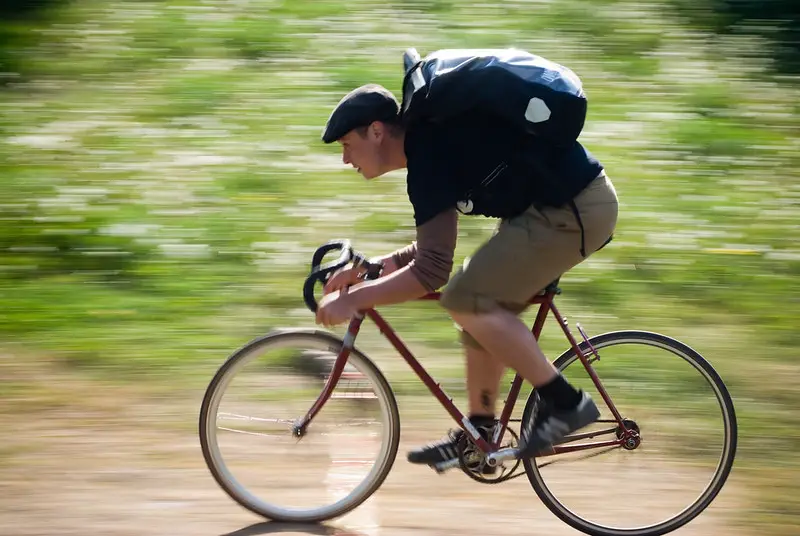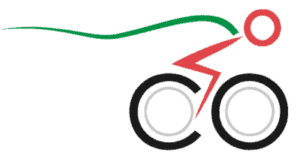Bicycles are composed of many components that work in unison to provide the world’s greatest form of transportation. Many of these components are composed of hundreds if not thousands of small moving parts to make them work. This leads to a bicycle producing many noises. Here at Bicycle Commuter Hero we often get asked:
Is it normal for bike brakes to squeal? A slight whine or high-pitched whistle is often common, especially with new brakes. Whereas a loud honking sound similar to a goose or the chirping of metal on metal can indicate a more serious issue such as contamination or improperly placed components.
Read on to find out what is normal when it comes to squeaky brakes and what should be inspected and fixed immediately. Often a few adjustments and cleaning will take care of most issues!
Is It Normal For Rim Brakes To Squeal?
When it comes to brakes rim brakes are the least likely of those to squeal. The exception being that when the pads are brand new and being broken in. Oftentimes for the first 10 or so miles when braking it will be accompanied by a slight whine.
Electric bikes built for everything and priced for everyone. Shop Rad Power Bikes, America's #1 electric bike brand. Get out. Go further. Ride Rad.
This is perfectly normal and usually disappears with time. Another common occurrence that makes rim brakes whine a bit is water. When riding in the rain and other inclement weather it is perfectly normal for rim brakes to have a high-pitched whistle and a loud warble.
However, if the sound is extremely loud or presents itself randomly one day as if for no reason it could indicate that there is significant contamination or foreign debris stuck in the braking system.
Loud obnoxious noise can also indicate that the component may have fallen out of alignment or broke altogether.

If your rim brakes start making loud noises for apparently no reason it is a good idea to stop riding and inspect immediately.
If you are not confident in your ability to assess and correct the issue then be sure to contact a reputable bike mechanic.

Is It Normal For Disc Brakes To Squeal?
Disc brakes are often considered the better option of the two main types of brakes for biking. They offer better modulation, stopping power, and are easier to swap wheelsets and tires. That being said disc brakes are often the more finicky of the two.
While a slight whine or high-pitched noise coming from the brakes is relatively common and pretty normal, especially for new brakes, anything else could be a pause for concern.
New brake pads and rotors often need some time to break in. The ventilation holes and cooling channels on the discs often have rough edges from the factory. This will lead to a soft warble or clicking sound when engaging the brakes.
Another common sound is a high-pitched squeal when coming to a full stop which is due to the finish on the brake pads. These sounds will often diminish as time goes on with the breaking-in process.

On the other hand, any loud honking, chirping, or grinding sounds can indicate a more serious issue. A very loud honking squeal will often mean that oil or grease has made its way onto the brake pads or rotors.
Chirping or a “singing” usually means that your rotor is “out of true” or that the calipers are improperly placed.

Grinding sounds are never good and it could mean that your pads have diminished entirely and you are now rubbing metal on metal. It could also be an indication that something is broken and the calipers are now grinding against the rotors.
If you suspect your disc brakes are making any of these noises it is best to stop riding immediately and speak with a qualified mechanic.
Possible Causes and Solutions
For both brake types, the causes for excessive noise are often the same. Best of all, the most common issues that cause noisy brakes can be fixed without the need to go into a bike shop. Read on to see what are the most common causes of brake squealing and what can be done to fix them.
Water
One of the most common issues causing brake noise in both rim and disc brakes is water. This can be due to riding in inclement weather or water already present on your road surface.
Water will not only make your brakes howl at times but also significantly decrease your stopping power. The best solution to dealing with water is to avoid riding in bad weather or excessively wet areas.
If this is not possible just remember to double the necessary room needed to stop and wipe down your rotors or rim braking surface with a clean rag after your ride. Noise caused by water will disappear when the water is gone.
Contamination
This is a very common cause and a very annoying one to deal with at times. If you suspect your brakes are suffering from contamination it is best to deal with it as early as possible. This will prevent the contamination from setting in and becoming much more of a hassle in the long run.
Contamination can take the form of oil, grease, and many types of road grime.
To deal with it, get yourself a clean rag, alcohol, and some sandpaper. Start by removing the wheels and brake pads. Use the alcohol to clean the rotors as thoroughly as possible and then use the sandpaper to take a few layers off of the pads. Put everything back together and go on a test ride.
If the noise persists then it is time for new pads and potentially rotors!
New Brake Pads
New brake pads are often a source of the noise. It is usually in the form of a high-pitched whistle or whine. This is completely normal with new brake pads.
It usually takes about 10 to 20 miles for them to break into the point where they are pretty silent. The best fix for this is to wait until that time.
Too Small Rotor or Too Much Heat
These issues can also cause squealing but are pretty rare. Unless you have a very incompetent bike mechanic or travel for miles at a steep downgrade then these are not going to be an issue for you.
However, if you do suffer from any of these the solutions are pretty simple. In the first instance get a new bike mechanic. In the second be sure to take regular breaks on your descents to allow your brakes to cool down! Or invest in a new set of brake pads designed to cool down quicker.
Brake Rub
This is the dreaded and most feared of all the brake noises. Rubbing is detrimental in so many ways. Not only does it cause you to push yourself harder on your rides but it also risks damaging components to the point of replacing them.
Brake rub from the pads, rotors, calipers, etc. can be an indication that your bike requires some serious work. If you suspect that this is the cause of brake noise then stop riding immediately.
Inspect and fix the issue right away! If you are not confident in your ability to do so then be sure to bring it to a local bike shop with a reputable mechanic.
Do not ride again until you are 100% certain that the brakes are safe.
How Much Noise Is Normal?
As mentioned above a small amount of noise such as a high-pitched whine or a low warble is normal when it comes to brakes. After all, it is a part coming in contact with another moving part of the bike designed to slow you down.
Some noise is normal during the operation of many bicycle components and should not be worried over.
However, if the noise is excessively loud or sounds like grinding or chirping then it is a good idea to stop riding and check it out right away!
Is It Dangerous To Have A Squealing Brake?
It isn’t always dangerous to have a squealing brake. If the squealing is due to water or contamination it is more of an inconvenience than it is dangerous. On the other hand, serious mechanical issues such as misaligned rotors or metal-on-metal grinding from worn-out brake pads can be very dangerous.

If ever in doubt remember that your brakes are your most essential piece of safety gear on the bike. Get off, check them and fix them if needed. If you are not confident doing this yourself then be sure to visit a qualified bike shop.
Conclusion
In conclusion, brake noise is normal in some scenarios. While in others it could be a dangerous and potentially deadly situation.
A good rule of thumb is the louder the sound the more concerning the issue should be. If you ever experience brakes making very loud or unusual noises it is best to check them. Do some research and watch some Youtube videos and determine if what you are hearing is normal or not.
If you have any doubts then be sure to get those brakes fixed and adjusted properly right away! Never take chances when it comes to your ability to stop!
Happy Pedaling!
